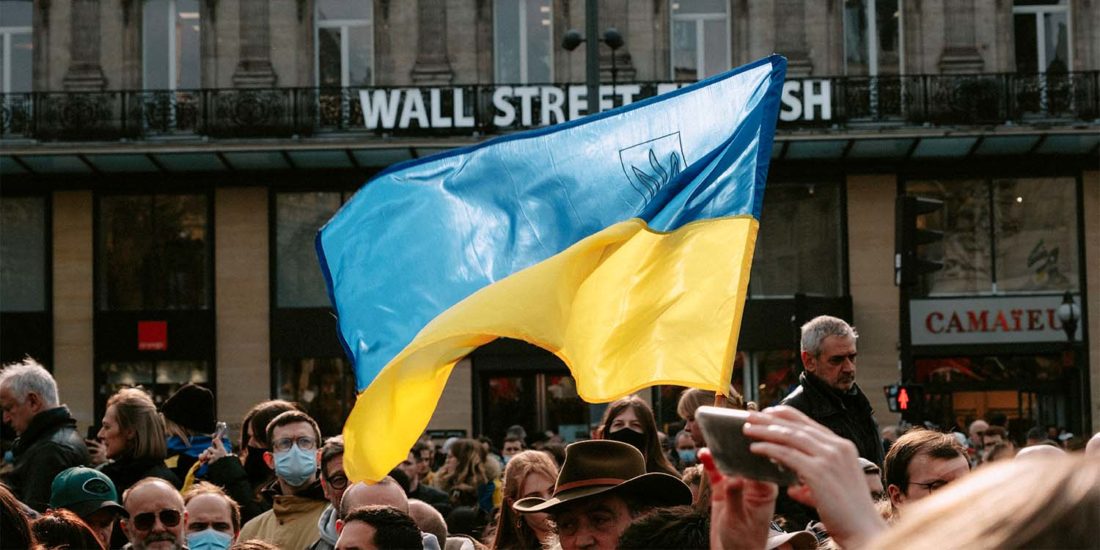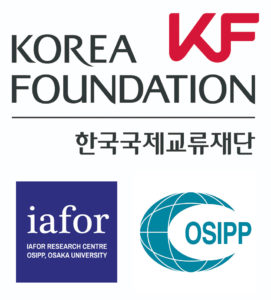 In response to the emerging crisis in Europe, IAFOR will be hosting a free online panel titled “The Ukraine Conflict: Challenges and Opportunities for Post-1945 East Asia” in collaboration with The IAFOR Research Centre (IRC), at the Osaka School of International Public Policy (OSIPP), Osaka University, and the Korea Foundation. This event is organised as part of the IRC-OSIPP’s project on “Peace and Human Security in Asia: Toward a Meaningful Japan-Korea Partnership” supported by the Korea Foundation. It is also part of the OSIPP course, “Global Governance II”.
In response to the emerging crisis in Europe, IAFOR will be hosting a free online panel titled “The Ukraine Conflict: Challenges and Opportunities for Post-1945 East Asia” in collaboration with The IAFOR Research Centre (IRC), at the Osaka School of International Public Policy (OSIPP), Osaka University, and the Korea Foundation. This event is organised as part of the IRC-OSIPP’s project on “Peace and Human Security in Asia: Toward a Meaningful Japan-Korea Partnership” supported by the Korea Foundation. It is also part of the OSIPP course, “Global Governance II”.
Thursday, March 17, 2022 16:00-18:00 (JST) Online
All times are in Japan time (UTC+9)
Find the time in your location
The panel will be live-streamed via Zoom and on the IAFOR Facebook page.
Participation is free of charge, but registration is required.
To participate in this symposium, please sign up below.
The Ukraine Conflict: Challenges and Opportunities for Post-1945 East Asia
The Russian invasion of Ukraine, after the COVID-19 pandemic, is becoming one of the most consequential international crises for global governance. It has again brought to sharp relief the divide between the “West” and the rest and shaken confidence in the rules-based order of the post-1945 international system. For East Asia, the main arena of China-US rivalry and realpolitik, could this be a moment to contemplate different modes of alignment among the smaller and middle size states that champions normative foreign policy, non-traditional security and participatory democracy? Join the roundtable discussion among panellists from Manila, Osaka, Seoul and Singapore!
Speaker Biographies
Brendan Howe
Dean, Graduate School of International Studies
Ewha Womans University, South Korea
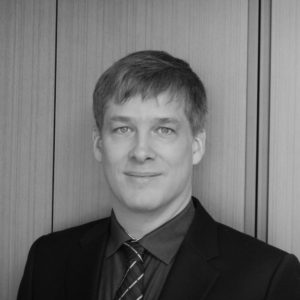 Brendan Howe is Professor of International Relations and former Associate Dean and Department Chair of the Graduate School of International Studies, Ewha Womans University. South Korea. He is also currently the President of the Asian Political and International Studies Association, and an Honorary Ambassador of Public Diplomacy and advisor for the Korean Ministry of Foreign Affairs. He has held visiting professorships and research fellowships at the Freie Universität Berlin, De La Salle University (Philippines), the University of Sydney, Korea National Defence University, the East-West Center (Honolulu), Georgetown University, Universiti Malaysia Sarawak, and Beijing Foreign Studies University.
Brendan Howe is Professor of International Relations and former Associate Dean and Department Chair of the Graduate School of International Studies, Ewha Womans University. South Korea. He is also currently the President of the Asian Political and International Studies Association, and an Honorary Ambassador of Public Diplomacy and advisor for the Korean Ministry of Foreign Affairs. He has held visiting professorships and research fellowships at the Freie Universität Berlin, De La Salle University (Philippines), the University of Sydney, Korea National Defence University, the East-West Center (Honolulu), Georgetown University, Universiti Malaysia Sarawak, and Beijing Foreign Studies University.
Educated at the University of Oxford, the University of Kent at Canterbury, Trinity College Dublin, and Georgetown University, his ongoing research agendas focus on traditional and non-traditional security in East Asia, human security, middle powers, public diplomacy, post-crisis development, comprehensive peacebuilding and conflict transformation. He has authored, co-authored, or edited more than 90 related publications including UN Governance: Peace and Human Security in Cambodia and Timor-Leste (Springer, 2020), Regional Cooperation for Peace and Development (Routledge, 2018), National Security, State Centricity, and Governance in East Asia (Springer, 2017), Peacekeeping and the Asia-Pacific (Brill, 2016), Democratic Governance in East Asia (Springer, 2015), Post-Conflict Development in East Asia (Ashgate, 2014), and The Protection and Promotion of Human Security in East Asia (Palgrave, 2013).
Charmaine Misalucha-Willoughby
Associate Professor
De La Salle University, Philippines
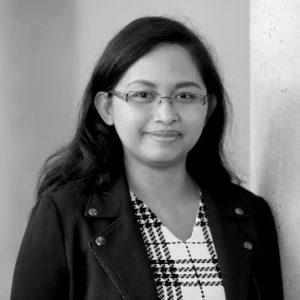 Charmaine Misalucha-Willoughby is Associate Professor in the Department of International Studies of De La Salle University, and Trustee of the Foundation for the National Interest, a newly formed think tank in Manila. Her areas of specialisation are Southeast Asia's external relations, security cooperation, and critical international relations theory. She is a frequent resource speaker in various Track II fora and roundtables by national government agencies. She was a Joint Fellow in the Institute of East Asian Studies and the Käte Hamburger Kolleg Centre for Global Cooperation Research at the University of Duisburg-Essen in Germany, an Advanced Security Cooperation Fellow (ASC15-2) at the Daniel K. Inouye Asia-Pacific Center for Security Studies in Honolulu, a Visiting Research Fellow under a Japan Foundation grant in the Osaka School of International Public Policy at Osaka University in Japan, and a recipient of the inaugural US-ASEAN Fulbright Program in the School of International Service at American University in Washington, DC. She received her PhD from the S. Rajaratnam School of International Studies at the Nanyang Technological University in Singapore.
Charmaine Misalucha-Willoughby is Associate Professor in the Department of International Studies of De La Salle University, and Trustee of the Foundation for the National Interest, a newly formed think tank in Manila. Her areas of specialisation are Southeast Asia's external relations, security cooperation, and critical international relations theory. She is a frequent resource speaker in various Track II fora and roundtables by national government agencies. She was a Joint Fellow in the Institute of East Asian Studies and the Käte Hamburger Kolleg Centre for Global Cooperation Research at the University of Duisburg-Essen in Germany, an Advanced Security Cooperation Fellow (ASC15-2) at the Daniel K. Inouye Asia-Pacific Center for Security Studies in Honolulu, a Visiting Research Fellow under a Japan Foundation grant in the Osaka School of International Public Policy at Osaka University in Japan, and a recipient of the inaugural US-ASEAN Fulbright Program in the School of International Service at American University in Washington, DC. She received her PhD from the S. Rajaratnam School of International Studies at the Nanyang Technological University in Singapore.
Haruko Satoh
Co-Director, IAFOR Research Centre, OSIPP
Osaka University, Japan
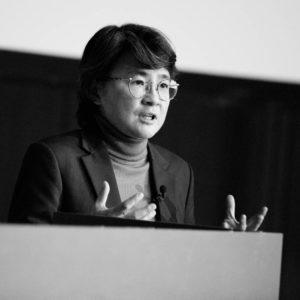 Haruko Satoh is Co-Director of the IAFOR Research Centre set up with the International Academic Forum (IAFOR) at the Osaka School of International Public Policy (OSIPP), Osaka University, where she also teaches. She is currently running a Korea Foundation project on “Peace and Security in Asia: Toward Meaningful Japan-Korea Partnership". She has worked at the Japan Institute of International Affairs (JIIA), Chatham House, and Gaiko Forum. She studied at Mount Holyoke College, Johns Hopkins University School of Advanced International Studies (SAIS) – Bologna Center, and University of Cambridge. Her interests are primarily in state theory, Japanese nationalism and identity politics. Recent publications include: “Great Power Relations and Threats to the Liberal International Order”, Hiroshima Peace Research Journal Vol. 8 March 2021;“Japan and Korea: A Fragile Relationship” (East Asian Policy 2020); "Much Ado about a Constitution” in Lam Peng Er & Purnendra Jain (eds), Japan’s Foreign Policy in the Twenty-First Century: Continuity and Change (Lexington Book, 2020); and, “China in Japan’s Nation-state Identity” in Brown & Kingston (eds), Japan’s Foreign Relations in Asia (Routledge, 2018). She is on the international advisory board of the Leiden AsiaCentre, member of the Executive Council of the Asian Political and International Studies Association (APISA) and on the board of the International Academic Forum (IAFOR).
Haruko Satoh is Co-Director of the IAFOR Research Centre set up with the International Academic Forum (IAFOR) at the Osaka School of International Public Policy (OSIPP), Osaka University, where she also teaches. She is currently running a Korea Foundation project on “Peace and Security in Asia: Toward Meaningful Japan-Korea Partnership". She has worked at the Japan Institute of International Affairs (JIIA), Chatham House, and Gaiko Forum. She studied at Mount Holyoke College, Johns Hopkins University School of Advanced International Studies (SAIS) – Bologna Center, and University of Cambridge. Her interests are primarily in state theory, Japanese nationalism and identity politics. Recent publications include: “Great Power Relations and Threats to the Liberal International Order”, Hiroshima Peace Research Journal Vol. 8 March 2021;“Japan and Korea: A Fragile Relationship” (East Asian Policy 2020); "Much Ado about a Constitution” in Lam Peng Er & Purnendra Jain (eds), Japan’s Foreign Policy in the Twenty-First Century: Continuity and Change (Lexington Book, 2020); and, “China in Japan’s Nation-state Identity” in Brown & Kingston (eds), Japan’s Foreign Relations in Asia (Routledge, 2018). She is on the international advisory board of the Leiden AsiaCentre, member of the Executive Council of the Asian Political and International Studies Association (APISA) and on the board of the International Academic Forum (IAFOR).
Victor Teo
Project Research Fellow, The Cold War Project
University of Cambridge, UK
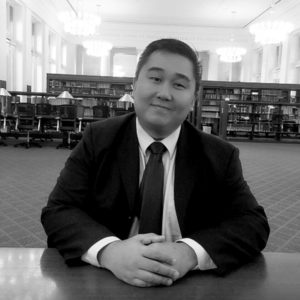 Victor Teo is Project Research Fellow with the “Beyond the Cold War & Asian Regionalism” at the University of Cambridge. Previously, he was Assistant Professor in the School of Modern Languages & Cultures), University of Hong Kong. He was also Harvard Yenching Visiting Scholar (2016-17), Harvard Yenching Institute and Academic Research Associate (2017-18) at the Weatherhead Center for International Affairs, Harvard University. He received his B.Soc.Sci. (Hons.) from the National University of Singapore. He subsequently trained as a lawyer and was called to the Bar of England and Wales by Middle Temple, UK. He received his MSc and PhD in International Relations from the London School of Economics and Political Science. His primary research interest lies in the International Relations of the Asia-Pacific, as well as the culture, politics and society of China, Japan and the Koreas. He is author of numerous books and articles on China-Japan relations, US-China relations, and US-China-Japan relations; his most recent book is Japan’s Arduous Rejuvenation as a Global Power: Democratic Resilience and the US-China Challenge (2019).
Victor Teo is Project Research Fellow with the “Beyond the Cold War & Asian Regionalism” at the University of Cambridge. Previously, he was Assistant Professor in the School of Modern Languages & Cultures), University of Hong Kong. He was also Harvard Yenching Visiting Scholar (2016-17), Harvard Yenching Institute and Academic Research Associate (2017-18) at the Weatherhead Center for International Affairs, Harvard University. He received his B.Soc.Sci. (Hons.) from the National University of Singapore. He subsequently trained as a lawyer and was called to the Bar of England and Wales by Middle Temple, UK. He received his MSc and PhD in International Relations from the London School of Economics and Political Science. His primary research interest lies in the International Relations of the Asia-Pacific, as well as the culture, politics and society of China, Japan and the Koreas. He is author of numerous books and articles on China-Japan relations, US-China relations, and US-China-Japan relations; his most recent book is Japan’s Arduous Rejuvenation as a Global Power: Democratic Resilience and the US-China Challenge (2019).
Carmina Untalan (Moderator)
Specially Appointed Assistant Professor, OSIPP
Osaka University, Japan
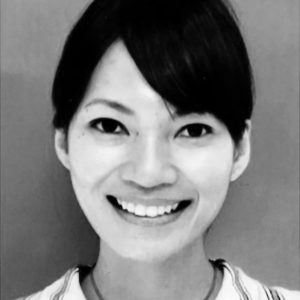 Carmina Yu Untalan is a Specially Appointed Assistant Professor at the Osaka School of International Public Policy, Osaka University, Japan. Her research interests include postcolonial and decolonial studies, critical international relations, and international political sociology. She was a recipient of the Japanese Government Scholarship (MEXT), and a former graduate student Fellow of the Asia Research Institute, at the National University of Singapore (NUS) and the Institute of Critical Social Inquiry, The New School, New York, United States.
Carmina Yu Untalan is a Specially Appointed Assistant Professor at the Osaka School of International Public Policy, Osaka University, Japan. Her research interests include postcolonial and decolonial studies, critical international relations, and international political sociology. She was a recipient of the Japanese Government Scholarship (MEXT), and a former graduate student Fellow of the Asia Research Institute, at the National University of Singapore (NUS) and the Institute of Critical Social Inquiry, The New School, New York, United States.

